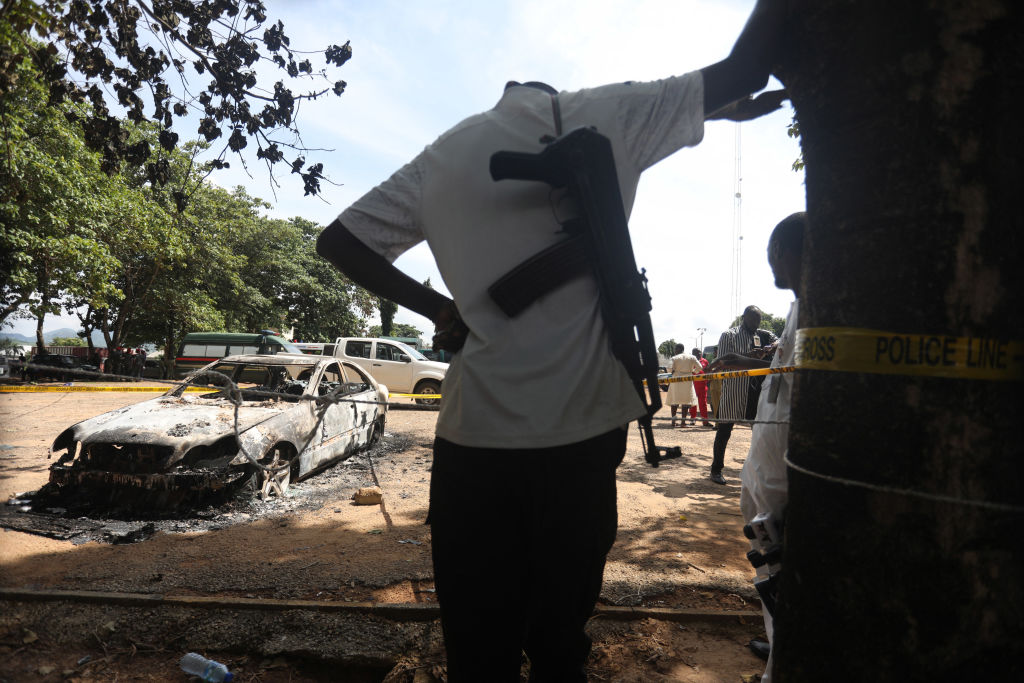ADF STAFF
Africa has eclipsed the Middle East as the main focus of worldwide terror groups who are determined to expand their reach.
That’s the conclusion of experts who have examined increasing attacks on the continent that have coincided with a spike in Africa-related web and video content produced by terror groups.
“This year, so far, the Islamic State has claimed more than half of its attacks in Africa,” Jihad Analytics founder Damien Ferré tweeted in July.
He said the Democratic Republic of the Congo (DRC), Mozambique and Nigeria are seeing expansion into new areas and an upsurge in attacks targeting Christians.
A recent editorial in al-Naba, the official weekly newspaper of the Islamic State group, encouraged Muslims to join their “fighting brothers in Africa.”
In 2021, al-Naba devoted 28 of 52 issues to Africa. Now, seven of the IS group’s 13 provinces are based on the continent.
“The fact that they are calling to join the [fight] in Africa is very significant,” Ferré told Agence France-Presse (AFP). “They acknowledge that at the moment, they lack the capacity to pursue the caliphate project … but there is definitely a desire to put marbles on Africa.”
With more than a third of the world’s terrorism deaths in 2021, the Sahel now is a leading hot spot of global terrorism, according to a United Nations monitoring panel.
It advised that unless extremism in Africa is crushed, “one or more of them will incubate an external operational capability for al-Qaida or a related terrorist group.”
South Africa-based terrorism analyst Jasmine Opperman attributes much of the advancing violence to weak governance in historically neglected rural communities and people who have lost faith in their countries’ authorities.
“If one looks at the history of Africa, al-Qaida has always had an entrenched presence,” she told Fox News Digital. “We are seeing an environment conducive for these international terror groups to find themselves, embed themselves and take the lead in extremist activities in all of these regions.”
In July, Islamic State West Africa Province (ISWAP) militants launched an attack on Nigeria’s Kuje Prison in Abuja. They freed more than 60 of the country’s most notorious extremists, even though Minister of the Interior Rauf Aregbesola called the facility “the most fortified in the country.”
“Boko Haram is not the same as we have seen a few years back,” Opperman said. “Many of the fighters crossed over to ISWAP, and we are seeing the ISWAP now even reaching into the Abuja area, the capital of Nigeria.
“It’s this geographical expansion as far as Abuja that remains a concern.”
In the DRC, the Allied Democratic Forces terror group has been linked officially to the IS group since 2017. It has benefited from an influx of fighters from Burundi, Kenya, South Africa and Tanzania.
Vincent Foucher, a researcher at the French National Center for Scientific Research, has seen evidence of far-reaching collaboration between militants in the Lake Chad region and more experienced fighters.
“Advisors and experts are sometimes mentioned who come to help at difficult times with decisions and reorganizations,” he told AFP.
The recent multimedia blitz through social media and on al-Naba caught the attention of Mina Al-Lami, a researcher specializing in extremism for BBC Monitoring service, who put the central group’s messaging into context.
“IS has been making a persistent call for recruitment in and hijra (migration) to Africa, especially West Africa and northeast Nigeria,” she tweeted on June 28. “IS hasn’t made such an emphatic call for hijra and nafir (heading out to join a jihadist front) since the heydays of its ‘caliphate.’
“The fact that IS’s high-profile, central branches [in] Syria and Iraq are making this call for hijra to Africa, rather than to the Middle East or any other regions, is quite significant and underscores the weight IS attaches to this effort.”

